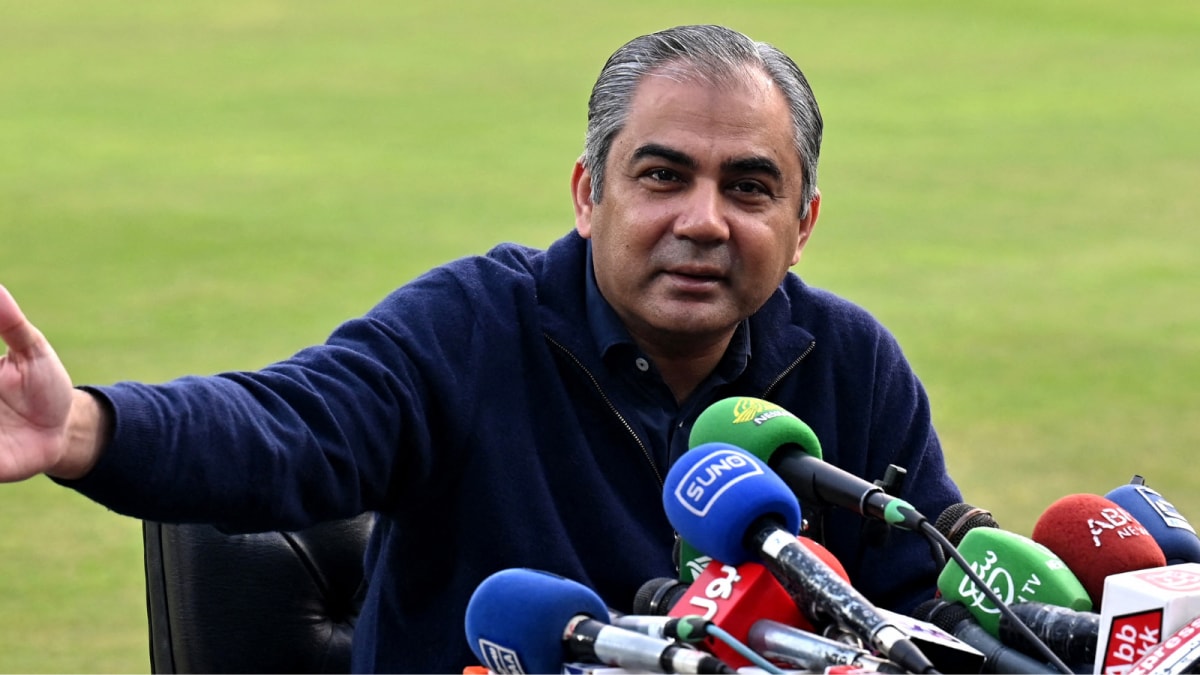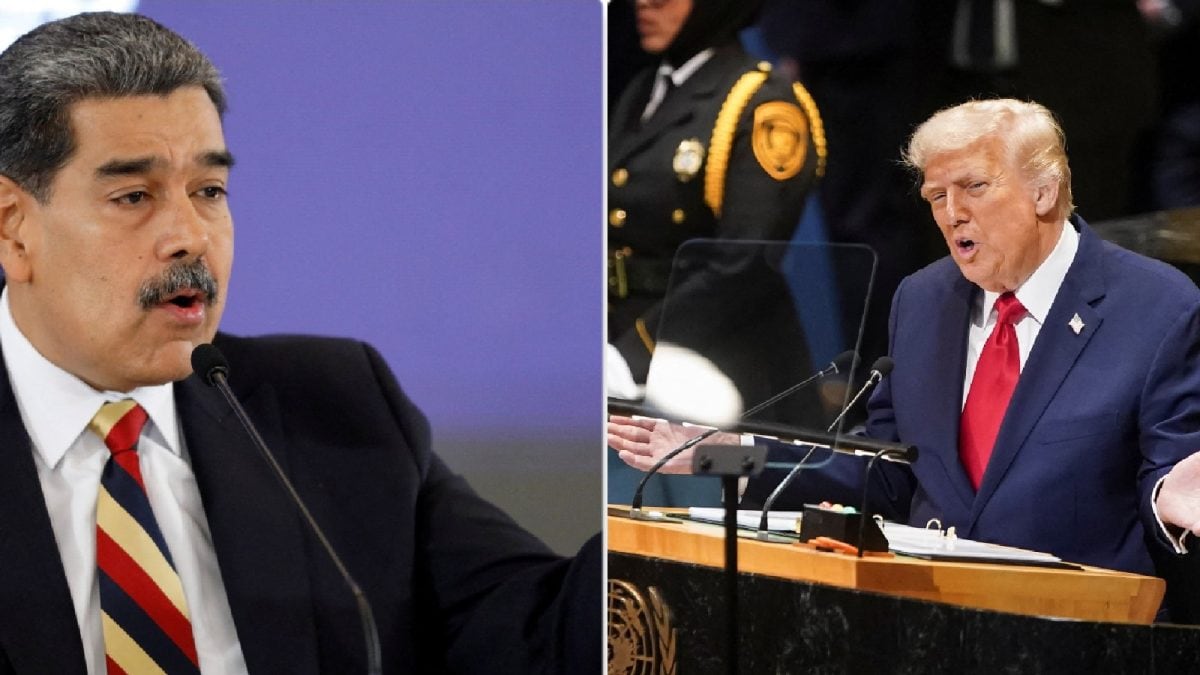Last Updated:
Without any background in sports administration, Naqvi was appointed chairman of the Pakistan Cricket Board and under his leadership, the country’s cricket fortunes nosedived

Mohsin Naqvi is PCB and ACC chief. (AFP Photo)
Mohsin Naqvi, the man at the centre of the Asia Cup trophy row, is a name synonymous with unchecked power and controversy in Pakistan and has emerged as a central figure in the country’s hybrid governance system, allegedly serving as the civilian face of the military establishment and intelligence apparatus.
Naqvi’s rapid rise, questionable appointments, and close ties to Pakistan’s powerful military chief, Field Marshal Asim Munir, have raised serious concerns about cronyism, corruption, and political engineering.
Recommended Stories
Sources told CNN-News18 that Naqvi is not only the blue-eyed boy of the Pakistan Army but also the cousin brother of Syeda Irum Asim, wife of Asim Munir. The family connection has reportedly cemented his status as one of the most trusted civilian operatives of Pakistan’s military, particularly the Inter-Services Intelligence (ISI).
Since Munir took over as Chief of Army Staff, Naqvi’s fortunes skyrocketed. During Pakistan’s caretaker setup, Naqvi was controversially appointed Caretaker Chief Minister of Punjab, the country’s most populous province. His short tenure was marred by widespread allegations of human rights abuses, illegal raids, and mass arrests of PTI workers, as part of a broader crackdown against former prime minister Imran Khan and his supporters.
Soon after, without any background in sports administration, Mohsin Naqvi was appointed chairman of the Pakistan Cricket Board (PCB). Under his leadership, Pakistan’s cricket fortunes nosedived. Once the No. 1 team under Imran Khan’s tenure, the national side now languishes at No. 7 in the rankings. Star players like Babar Azam and Mohammad Rizwan were sidelined, triggering backlash from fans and experts alike.
Beyond mismanagement, Naqvi is also accused of serious financial irregularities. Sources allege that he awarded over Rs 250 billion in unaudited contracts to military-run firms like Frontier Works Organisation (FWO) and National Logistics Cell (NLC)—a clear violation of procurement norms. These contracts include massive upgrades to key cricket stadiums—Gaddafi Stadium (Lahore), National Stadium (Karachi), and Rawalpindi Stadium—all handed out without bidding or oversight, under the guise of preparing for the upcoming Champions Trophy.
After being removed from the CM position, Naqvi didn’t fade into the background. Instead, he was elevated to the Senate and then made Pakistan’s interior minister—a position that grants sweeping control over domestic security and political opposition. Critics argue that this appointment was aimed squarely at neutralising Imran Khan and his PTI, continuing a broader campaign of suppression orchestrated in tandem with the military.
Multiple political sources and analysts claim that Mohsin Naqvi acts as a civilian front for Pakistan’s ISI, reportedly engaging in money laundering, coercion, and blackmail to secure political outcomes and illicit funds. According to intelligence leaks, COAS Asim Munir has instructed top generals to support Naqvi, giving him wide-reaching authority despite lacking any democratic mandate.
Former PM Imran Khan has repeatedly accused Naqvi of orchestrating extrajudicial actions and ruining Pakistan’s cricket system, calling him the “civilian face of military tyranny”.
As criticism mounts and public discontent grows, Mohsin Naqvi’s story exposes the deep entanglement between Pakistan’s military, intelligence agencies, and its civilian institutions. His rise symbolises the failure of democratic norms in Pakistan and the unchecked influence of the military in virtually all spheres of governance—from politics and security to sports and finance.
This hybrid regime, fronted by individuals like Naqvi but directed from Rawalpindi, is now openly acknowledged, leaving little doubt about who truly runs Pakistan.
About the Author

Group Editor, Investigations & Security Affairs, Network18
Group Editor, Investigations & Security Affairs, Network18
Islamabad, Pakistan
September 29, 2025, 16:24 IST
Loading comments…
Read More



